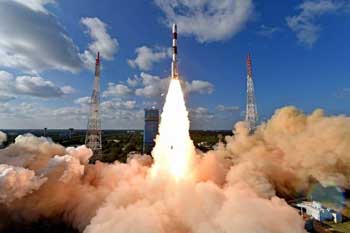INVC,,
S. Jaipal Reddy, Union Minister for Urban Development said that there is huge demand for technology up gradation for ensuring effective service delivery of basic services. He further said that a lot of new initiatives by the Ministry of Urban Development in various sectors would need collaborations from across the world to ensure for effective implementation. In this regard, “We need to learn a lot from France which being at an advanced stage of urbanization can provide technical expertise in the field of urban transport, a water supply and sanitation etc.” This was stated by the Minister, while inaugurating three days (15th to 17th Jan) “Indo French Seminar on Cooperation between States and Regions and Local Authorities- Local Governance, Sustainable Management and Regional Development,
Referring to the 74th amendment to the Indian constitution which accorded constitutional recognition to the third layer of government i.e the urban local bodies , the Minister said that several critical functions such as water supply, sanitation and solid waste management, urban poverty alleviation, urban planning etc were transferred to the third tier. The amendment also envisaged empowering the third tier in a manner commensurate with the newly assigned responsibilities. He further mentioned that the empowerment of local governments through the transfer of funds, functions and functionaries is still in transition and it is the endeavor of his Ministry to catalyse this process. The most significant effort in this direction is the launch of the Jawaharlal Nehru National Urban Renewal Mission (JNNURM) four years ago which is one of the flagship programmes of the Government of India, he added. The missions also envisages establishment of urban local bodies as accountable and self-sustaining units of governance besides integrated fast track development of cities.
Shri Reddy informed that Ministry has also formulated the National Urban Sanitation Policy with the vision that all Indian cities and towns become totally sanitised, healthy and liveable and ensure and sustain good public health and environmental outcomes for all their citizens with a special focus on hygienic and affordable sanitation facilities for the urban poor and women. He also referred to other initiatives namely the rating of cities, a communication campaign and formulation of state sanitation strategies, city sanitation plans and formulation of service level benchmarks in six sectors of urban service delivery i.e water supply, sanitation, solid waste management, drainage, transport and E-governance.
The seminar will be part of the ongoing ‘Bonjour India’ festival of France in India. Mr Bertrand Delanoe, the Honble Mayor of Paris, Mr Yves Dauge, Vice-Mayor of Chinon and chairman of the steering committee for the seminar and Mr Jerome Bonnafont, Ambassador of the Government of France to India will represent the Government of France.
The purpose of the seminar is to enable Indian Urban local bodies to meet their French counterparts at all levels (central, state and local) in order to encourage better exchange of ideas in respect of governance systems; intensify existing Indo-French decentralized partnerships; implement new multi-player decentralized cooperation projects in thematic frameworks such as culture and heritage for local development, country and town planning, training of elected local representatives; public-private partnerships, etc. The partnership will aim to address the issues of coherent planning taking into account sustainable development, urban mobility and other issues at a city level, strengthen local capabilities, participation of civil societies and people in governance, rehabilitation and modernisation of historic city centres in terms of housing, equipment, traffic, public spaces etc and access of inhabitants to essential services such as water, sanitation. The seminar will comprise presentations, panel discussions and exhibitions on these issues. It will be open to all players of decentralized cooperation: elected representatives, officials, NGOs, local associations, associations of elected representatives, companies, industrialists, universities.













